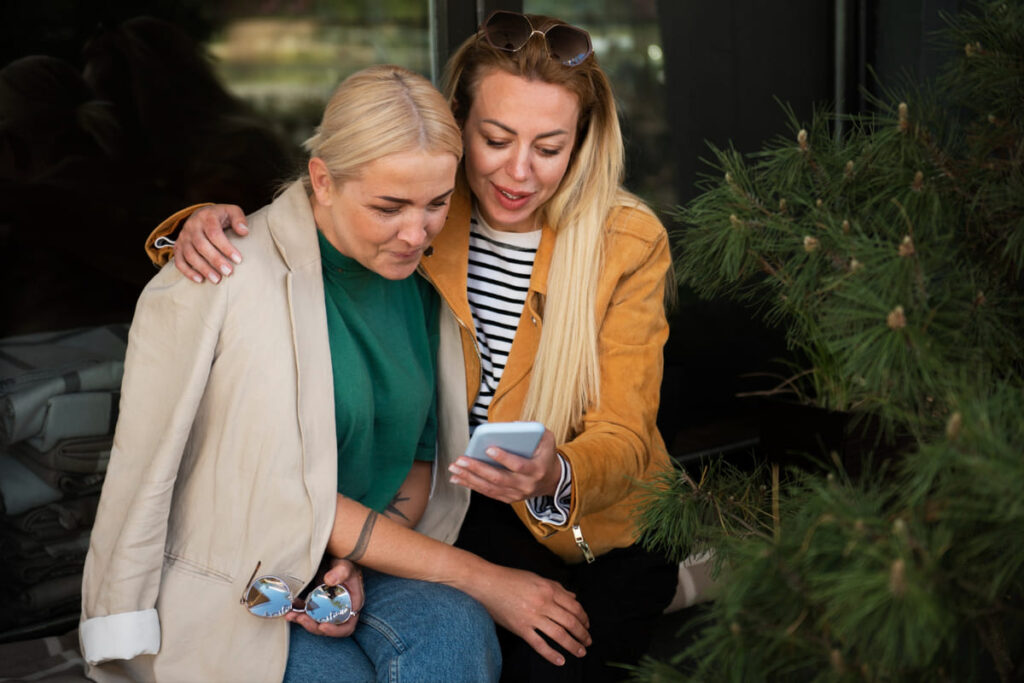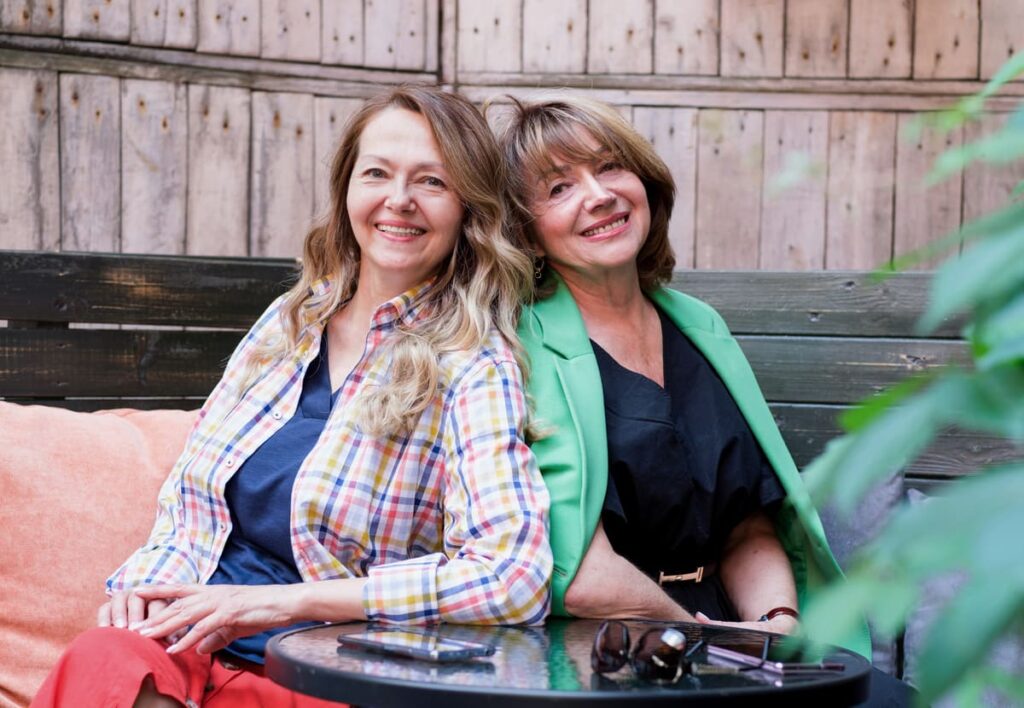The Real Truth About Friendships After 40
Friendships often change as you move through different stages of life. After 40, you might find your social circle looks different than before, with fewer but deeper connections.
The truth is, as you age, the focus usually shifts from having many friends to nurturing the quality of your friendships. This shift can bring more meaningful and supportive relationships into your life.
Embracing deeper connections

As you get older, your friendships often become more meaningful. You start to value quality over quantity. This means spending time with people who truly understand and support you.
You are likely more selective about who you invite into your inner circle. That’s because you want relationships that enrich your life, not drain it. Deeper connections allow you to share your true self without fear of judgment.
You might find it easier to open up about your feelings and experiences now. When you do, you build trust and strengthen the bond between you. These moments create a solid foundation for long-lasting friendships.
At this stage, you appreciate the little things, like a phone call, a shared meal, or sincere advice. These simple gestures deepen your connection and remind you that these friendships matter.
Investing in a few close friends can bring more happiness than spreading yourself thin over many casual acquaintances. You get support when you need it most, and you give it back in return.
Prioritizing trust over numbers

When you’re over 40, the number of friends you have is less important than how much you can trust them. You may find it more rewarding to have a few close friends who truly know and support you.
Trust forms the foundation of meaningful friendships. It allows you to be yourself without fear of judgment or betrayal. This kind of connection often feels more comforting than having many acquaintances.
You might notice that time and life experiences help you identify who is reliable and genuine. It becomes easier to focus on friendships where honesty and loyalty are present.
Having fewer but deeper friendships can also reduce social pressure. You get to invest your energy in relationships that enrich your life, rather than spreading yourself thin.
Valuing emotional support

As you get older, emotional support becomes more important than ever. You might find that a few close friends who really listen mean more than having a large social circle.
When you face challenges, having someone who understands your feelings can make a difference. You don’t need constant company, but knowing you can count on someone matters.
You may also notice that your ability to provide emotional support grows. Sharing life experiences helps you connect on a deeper level. This mutual support creates stronger, more meaningful friendships.
Focusing on emotional support helps you prioritize friendships that bring comfort and trust. You learn to appreciate honest conversations and empathy over surface-level interactions.
Ultimately, the friendships you nurture after 40 often reflect a genuine exchange of care and understanding. These connections can enrich your life quietly but significantly.
Choosing authenticity

As you get older, you likely notice that genuine connections matter more than having many acquaintances. You start to value friends who show up as their true selves. Authenticity means being honest about your feelings, interests, and boundaries.
You don’t have to pretend or fit into social expectations. When you choose friends who accept you as you are, those relationships feel more fulfilling. It also makes it easier for you to be open and vulnerable, which deepens trust.
Authentic friendships reduce stress because you don’t have to maintain a facade. You know you can share your highs and lows without judgment. This kind of connection becomes important in your 40s and beyond, as life experiences shape what you truly value in people.
Investing time wisely

You probably notice that your time feels more limited than before. Choosing how to spend it becomes more important as other responsibilities take up space in your life.
Focusing on friendships that bring you genuine support and joy makes your time well spent. It’s better to invest in a few meaningful connections than spreading yourself too thin.
You can be selective without cutting people off. Ask yourself if a friend enriches your life or drains your energy. This helps you decide where to invest time.
Finding balance matters. You don’t need to say yes to every invitation. Saying no sometimes opens room for deeper, more intentional moments with close friends.
Quality friendships often come from shared experiences and honest conversations. Carving out time for these can strengthen bonds even if your social circle is smaller.

When you reach your 40s, friendships often carry a rich shared history. You and your friends have experienced many of life’s milestones together, creating a unique bond.
Those memories become a foundation for your relationship. They remind you of where you’ve been and how you’ve both grown.
You might laugh about old stories or reflect on challenges you faced as a team. This common past helps you feel connected even during busy or stressful times.
You don’t need a large group to feel supported. Just a few friends who understand your history can make all the difference in your social circle.
Celebrating what you’ve shared reinforces trust and makes your time together more meaningful. It’s a key reason why quality matters more than quantity after 40.
Setting healthy boundaries

You might find that your friendships change as you get older. Setting healthy boundaries helps protect your time and energy. It’s okay to say no when something doesn’t feel right for you.
Boundaries also help keep your friendships respectful. When you communicate your limits clearly, your friends will understand what you need. This can reduce misunderstandings and create a stronger bond.
Remember, boundaries aren’t about pushing people away. They are about creating a space where both of you feel comfortable and valued. You deserve friendships that respect your feelings and priorities.
If someone consistently ignores your boundaries, it’s important to reconsider that relationship. Healthy friendships grow with mutual respect, not pressure or guilt.
By setting and maintaining boundaries, you make room for friendships that support your well-being. This focus on quality over quantity means you’ll invest in relationships that truly matter to you.
Appreciating vulnerability

You might find that as you get older, being open feels more natural. Sharing your struggles and fears with close friends can deepen your connections.
Vulnerability isn’t a weakness; it’s a way to build trust. When you allow yourself to be seen, you invite others to do the same.
Friendships after 40 often thrive when both people feel safe to express their true feelings. This honesty can lead to support that feels genuine and lasting.
You don’t need to pretend everything’s perfect. Being real about your challenges helps create a space where your friends can support you authentically.
Appreciating vulnerability means embracing imperfection. It allows friendships to grow beyond surface-level talk into something more meaningful.
Preferring meaningful conversations

As you get older, you likely notice that small talk feels less satisfying. You start craving deeper conversations that truly connect you with others. Sharing your thoughts and feelings becomes more important than just filling silence.
You might find yourself drawn to friends who listen closely and respond thoughtfully. Talking about your experiences, challenges, and dreams feels more rewarding than chatting about the weather or gossip.
Meaningful conversations help you understand yourself and your friends better. When you focus on quality over quantity, you build bonds that last. These talks often leave you feeling heard and supported, which is valuable at any age.
Choosing to invest your time in such interactions can make your friendships richer. You appreciate the honesty and vulnerability that come with these moments. Over time, these connections can become a steady source of comfort and joy.
Removing toxic ties

You might notice some friendships start to drain your energy instead of lifting you up. It’s normal for relationships to change, especially as you grow and develop new priorities. Recognizing toxic ties means paying attention to how you feel after spending time with someone.
If a friend consistently leaves you feeling anxious, unappreciated, or disrespected, it may be time to reevaluate the connection. You don’t have to hold onto relationships that harm your well-being. Setting boundaries is a healthy step to protect yourself.
Removing toxic ties doesn’t mean you have to cut off every friend abruptly. Sometimes, it’s about creating distance or limiting contact. You get to decide what feels right and safe for you.
Remember, your friendships should bring joy and support. It’s okay to prioritize those who add positive value to your life, especially after 40 when your time and energy are precious.







